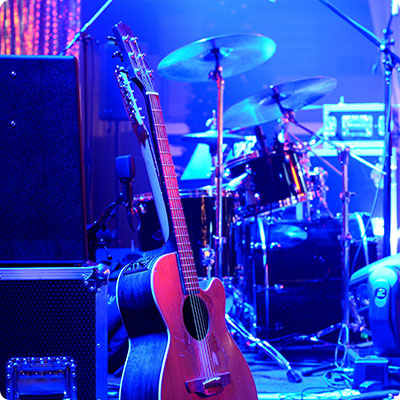Organize your stay Friuli-Venezia Giulia
 Money Friuli-Venezia Giulia
Money Friuli-Venezia Giulia
As in most countries of the European Union, the currency is the Euro. The Swiss and Canadians will find all the necessary exchange offices at the airport and in town.
 Budget & Tips Friuli-Venezia Giulia
Budget & Tips Friuli-Venezia Giulia
The cost of living is about the same as in France or Belgium. The price of food is slightly lower. However, gasoline is expensive in Italy.
Hotels. Average rates for a double room with bathroom; 2 stars: between 65 and 120 € - 3 stars: between 80 and 150 € - 4 stars: between 125 and 200 € - 5 stars: between 165 and 300 €. Price variations are expected between high and low season.
Shopping. Prices in stores usually include VAT (in Italian IVA, Imposta sul Valore Aggiunto). VAT on clothing: 17%. VAT for other products and services: 22%.
Indicative prices: here is a list of average prices charged by cafés and restaurants: between €4 and €7 for a well-stocked panino - between €1.50 and €4 for a bottle of water - about €9 for a pizza and €20 for a fixed-price menu (including VAT) - between €20 and €35 in a typical medium-sized restaurant - more than €40 in a good restaurant.
 Passport and visas Friuli-Venezia Giulia
Passport and visas Friuli-Venezia Giulia
Italy is part of the European Union and the Schengen area, so the formalities to go there are reduced.
EU citizens and Swiss citizens. Identity card or passport expired within the last 5 years.
Canadian citizens. Valid passport. No visa is required.
 Driver's license Friuli-Venezia Giulia
Driver's license Friuli-Venezia Giulia
French, Belgian and Swiss driving licenses are accepted in Italy. The Canadian driver's license must be accompanied by an International Driving Permit (IDP) which can be obtained from the Canadian Automobile Association (CAA).
 Health Friuli-Venezia Giulia
Health Friuli-Venezia Giulia
There are no particular health risks in Friuli Venezia Giulia. The tap water is drinkable and can be consumed.
 Mandatory vaccination Friuli-Venezia Giulia
Mandatory vaccination Friuli-Venezia Giulia
There are no vaccinations required for travel in the region.
 Security Friuli-Venezia Giulia
Security Friuli-Venezia Giulia
The safety conditions in Friuli Venezia Giulia are equivalent to those in other parts of Europe. The cities are safer than Paris or other large cities in France, Belgium, Switzerland or Canada, as long as you follow the usual safety rules: do not leave your belongings unattended, make sure your bag is well closed... There are no particular precautions to take if you are a solo traveler.
 Time difference Friuli-Venezia Giulia
Time difference Friuli-Venezia Giulia
Italy belongs to the same time zone as France, Switzerland and Belgium. In April, we move forward one hour and at the end of October we move back one hour. The time difference between Quebec and Italy is 6 hours.
 Spoken languages Friuli-Venezia Giulia
Spoken languages Friuli-Venezia Giulia
The official language is Italian and Friuli Venezia Giulia also has three minority languages:
Friulian: still widely spoken by the inhabitants of the region
Slovenian: mostly spoken in eastern Friuli, in the areas bordering Slovenia.
German: spoken in several linguistic islands of the Alps, as well as in the seaside resorts of the coast (Lignano Sabbiadoro, Grado), frequented by Austrian tourists.
The region also offers a mosaic of dialects: Triestino in Trieste, Veneto dialects in the coastal and plain areas, Resiano in the Val Resia..
 Communication Friuli-Venezia Giulia
Communication Friuli-Venezia Giulia
With the exception of some remote areas of the Alps, telephone coverage is excellent throughout the region, as is wifi. Most hotels offer free wifi, as do many bars.
 Electricity and measurements Friuli-Venezia Giulia
Electricity and measurements Friuli-Venezia Giulia
Italy is connected to 220 volts like the rest of continental Europe. However, the type of plug may vary (from 2 to 3 prongs). It is therefore recommended to bring an adapter, especially for telephone and laptop plugs.
 Luggage Friuli-Venezia Giulia
Luggage Friuli-Venezia Giulia
Choose sober and practical clothes for the day and a few more stylish pieces for going out in the evening. Bring a windproof jacket to face the bora, the cold central European wind that sometimes blows in gusts in Trieste. In summer, pack sunglasses, high protection sunscreen to face the solleone (heat wave), mosquito repellent and a bathing suit if you plan to go to the coast. In winter, take warm clothes as temperatures can approach 0°C. If you are going to the mountains, bring hiking clothes and equipment in the summer and skiing equipment in the winter. In summer, avoid entering churches with uncovered shoulders and legs.

















